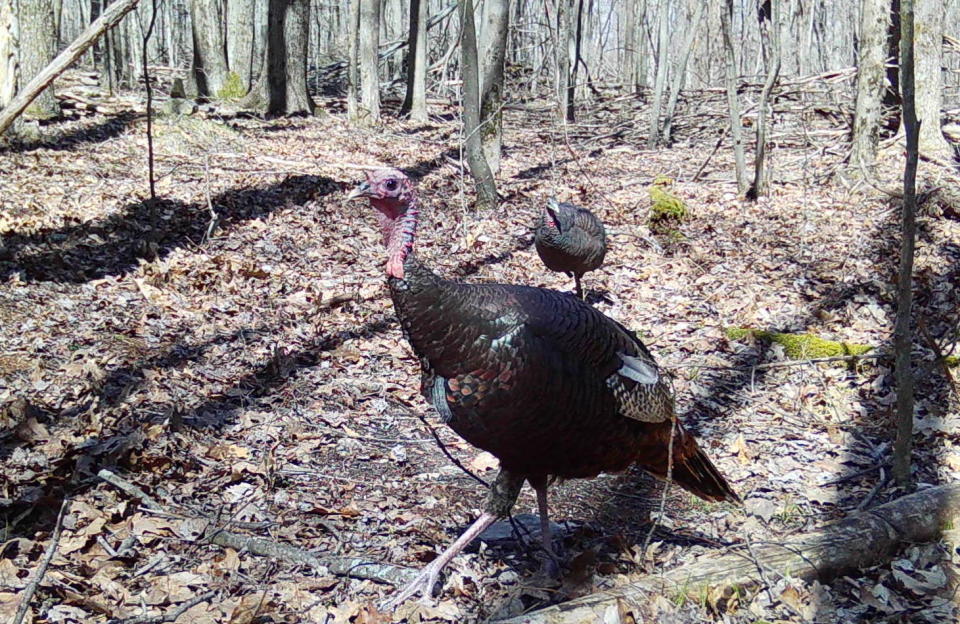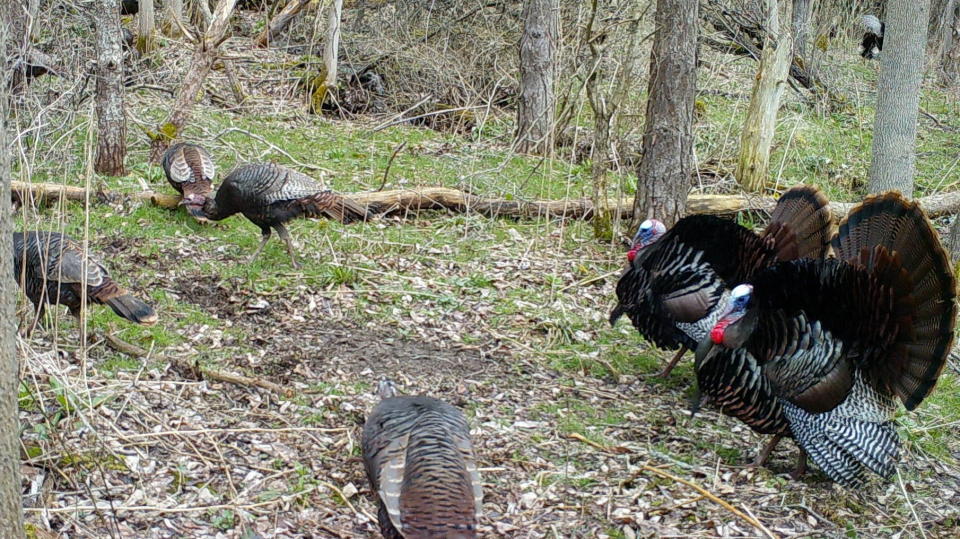Sportsmanship, safety and gobbler hunting: Follow these guidelines to avoid accidents
We all want to draw down on that old tom.
Gobbler hunting can be a driving passion that gets us up at 4 a.m. to climb those hills in the dark woods to meet the challenge.
That inner drive can bring out something else, too.
Within many of us is a competitive aspect to gobbler hunting that shows the best in us, but also, unfortunately, the not-so-good side, too.
Other turkey hunters are in the woods at first-light too when that old bird sounds off.
We like to imagine that our turkey hunt will put us one-on-one with Mr. Tom.
But the fact of the matter is, there are few places to hunt nowadays where we don't have other camouflaged gobbler-seekers listening from the other side of the hill or from out across the field.
Hunting Mr. tom turkey in the springtime has become a very popular sport.
These days, lots of human beings are in the woods during turkey season.
Those gobbles that we long to hear carry a long way in the early part of the season, especially before leaf-out.
And that magical sound we term a gobble calls other hunters in from afar.
When a bird "gets going," that is, gobbling and gobbling, you can bet your last face mask on a buggy day that someone else is setting up to work him in too.
But what should we do?
The question is an important one to ask, especially when we are fortunate enough to be mentoring a new hunter or on our own.

Is it ethical to try to call the bird away from another hunter?
Is that part of the sport?
Or should we bail out, go off over the ridge or into the next stretch of woods and try to get another tom going?
First of all, it is easy to get fooled into thinking that every time we hear a hen call and a gobbler answer, that it's another hunter.
The NYDEC recommends that when we hear a hen yelp or cluck, we should expect it to be another hunter and use extreme caution.
And don’t stalk the bird!
According to hunting firearm related accidents, half come from stalkers that are trying to sneak on the gobbler.
The sport is in calling the tom.
Let him do the walking.
But occasionally, what sounds like another hunter is actually a real hen, yelping to a tom.
It may be a secret to some, but real hens sometimes make bad calls.
So we can’t always tell by the sound if it is a hen turkey or another hunter.
Like often has been said, a real hen turkey couldn't win a Turkey Calling Championship. They don't sound real enough, they make mistakes … grammatical errors in turkey talk.
Ironic as that may be.
So, when we hear a call, the first thing is to assess the situation until it is determined that actually another hunter is dueling with a gobbler and it's not a hen.
If it is a hunter, and it is open or state land, there is nothing wrong with throwing a call out. It lets everyone in the immediate area know you are there, too.
But setting up and working a bird that someone else is set up and calling to is a recipe for a problem.
Human beings can get a bit edgy when we perceive that somebody else is moving in on "our bird."
Nervousness and competition stirred into the emotional soup of the adrenaline-charged moment of a gobbler strutting into gun range is not a good thing because that's when accidents can potentially happen.
The odds of getting a shot at the bird go down in direct proportion to the more it is called to by different hunters.
Turkey hunters working the same bird can be dangerous.
I've been shot at while calling a tom and it is no fun.
A pair of rookie turkey hunters, a father and son, were trying to sneak in, stalk and bushwhack a tom I had been calling.
Luckily for me (and the gobbler) they misjudged their shotgun's effective range and starting blasting away at about 70 yards out.
After the shooting and screaming stopped, we were all scared.

Another word to the wise ...
A few years ago I was calling to a tom down in a steep hollow on State land, with two buddies. The bird was with hens and would only sporadically answer ... lockjaw.
All of a sudden, from behind us, the sound of crashing brush and breaking branches broke our attention away from the turkeys down in front.
Three camo-wearing turkey hunters, almost running, broke through the thick brush behind and stopped when they saw us sitting there.
One said, "We thought you were a flock of hens." And then added, "Sorry ..." and left embarrassed and without another word.
We couldn't believe it!
More: Gobblers are unforgiving, but turkey hunting transcends success, failure: Outdoors column
First of all, never, ever, ever, come in on a turkey caller. It is a good way to get shot. That's how accidents happen in the woods.
And second: why were those hunters coming in to hen calls? Just because there are "hens" (actually me) calling, it does not necessarily mean that there are gobblers there.
Sportsmen, please, let's give each other space and tamp down that competitive drive.
Leaving a gobbling tom to another hunter who was working him first is not only the ethical and right thing to do, it is the safe thing to do because we all want to call turkeys on another day.
-- Oak Duke writes a weekly column.
This article originally appeared on The Evening Tribune: Oak Duke column: Turkey hunting ethics can prevent tragic accidents

